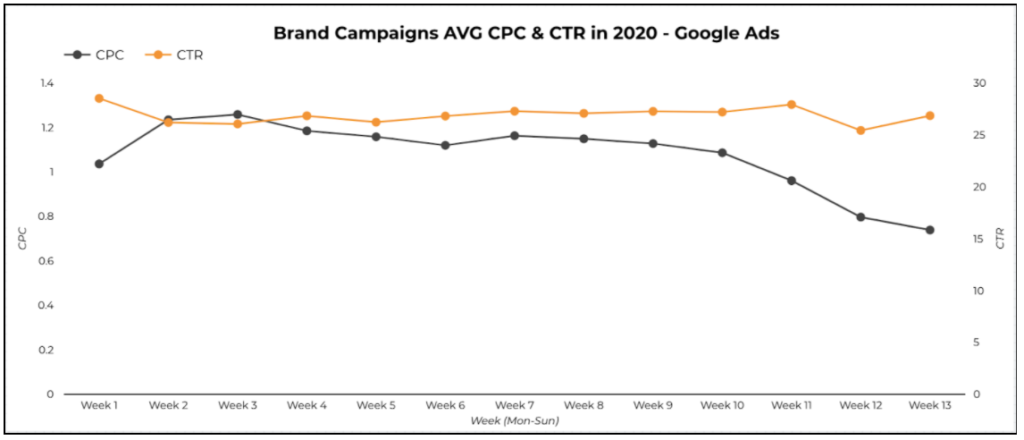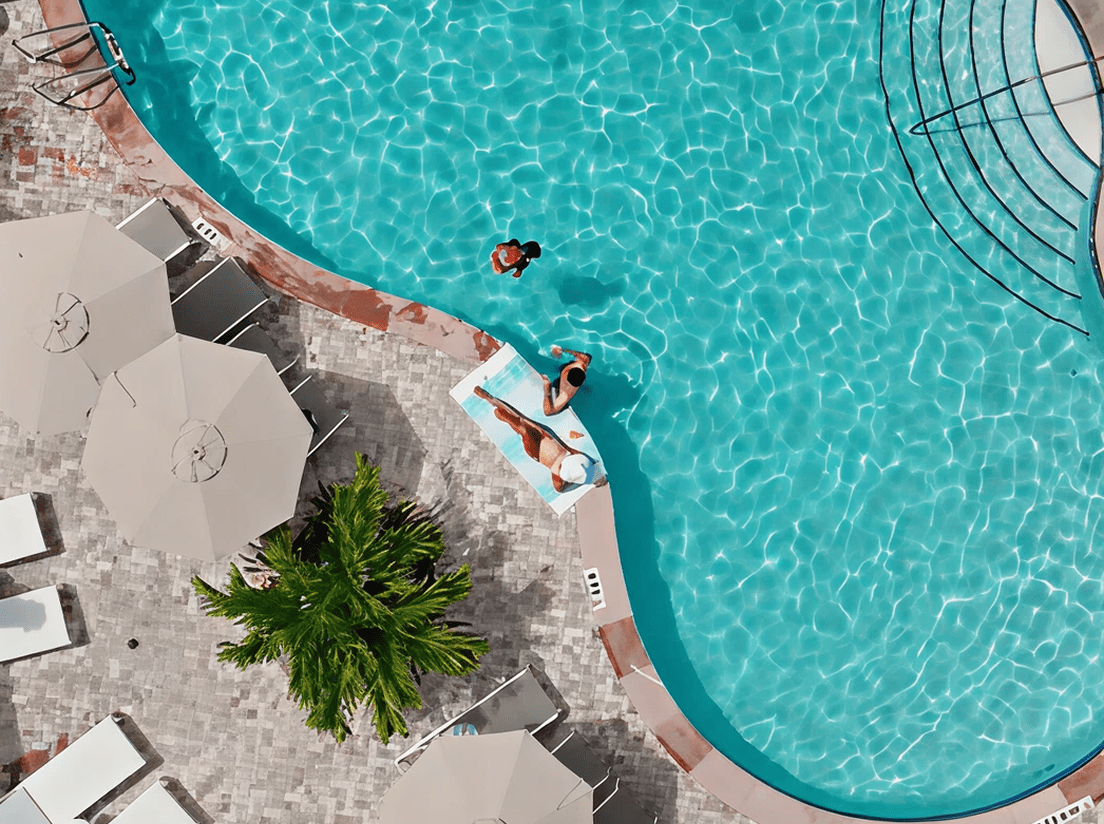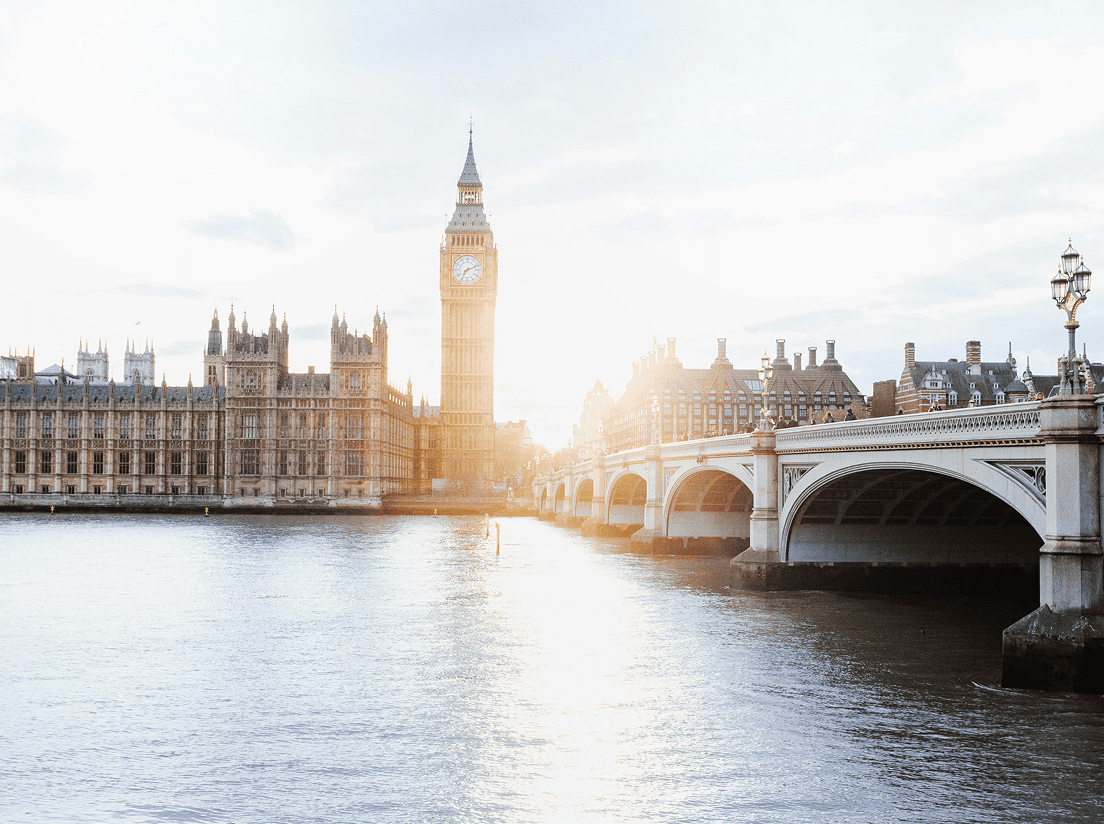
For the hospitality industry that Screen Pilot loves and services, the past few weeks have been nothing short of a whirlwind. As news and mandates update regularly, it can be difficult to keep up and remain forward-thinking during a time of crisis.Our teams here at Screen Pilot are not only reacting to an immediate change in service needs, but are also developing recovery plans so that we are prepared to tackle whatever comes next.Here are some advertising DO’s and DON’Ts our team has compiled in order to provide some guidance.
If your paid media is currently paused:
DO:
Strongly consider turning on branded search campaigns.
- We are currently seeing CPCs trending downward as competitors are pulling out of the auction. Even online travel agents (OTAs) are pulling out and taking with them their typically high bids on branded hotel terms. Lower competition leads to lower costs, making this is the perfect time to keep your branded campaigns live, even at a very reduced budget. Strive to maintain a brand presence and capture those who are still looking for your hotel.

Leave your brand campaigns running so you can monitor auction insights.
- This is the best way to gather data around the OTAs and competitors to keep a pulse on when they start to re-enter the paid search auction, specifically when they begin to bid on your brand terms and essentially siphon off the revenue that could go to you directly. Though Google does offer a report to find this information, the only way to obtain it is for your keywords to also be live and in the auction.
- These reports can also be set up to automatically email daily.

Strongly consider a presence in metasearch.
- Currently, the OTAs are still bidding in metasearch for future dates–some further out than you might expect. We recommend making use of metasearch bid multipliers to focus on this particular group of prospective guests. Stay competitive by increasing bids on consumers looking for stay dates more than 30 days out 30+ days out to ensure higher visibility among that audience.
- Metasearch platforms also only pull in the rates that are marked available in your booking engine, so your ads will be up-to-date if your hotel or resort has any limited availability or closures.
- Add a call out on your ads. Consider including phrasing like “Reopening Summer 2020,” “Still Taking Reservations” or any iteration of these.
Rewrite your ad copy.
- Work on post-COVID-19 messaging now so it’s ready to set live as soon as you’re comfortable re-introducing media budgets. It would be a disservice to wait and re-write ad copy when campaigns are ready to go live again. This will ensure there’s no lag between new budget approvals and your ads reentering the marketplace.
Collaborate with your marketing and agency partners.
- Where possible, keep your partners and agencies up to date about closures, estimated reopening dates and current happenings in your area. Use them as a resource to help prepare a strategy for your recovery phase.
Follow other hotels in your competitive set/similar markets on social media.
- This is a great way to start compiling ideas for paid media messaging down the road and what is resonating with consumers during a difficult time.
- You can also make use of Facebook’s Ads Library to see what your competitors are doing with their ad dollars.
DON’T:
Fall into the “all or nothing” mentality.
- This does not have to be an either/or situation. You don’t have to pause all paid media or keep it all live.
- Consider keeping certain campaigns active based on both your goals and your consumers’ appetite for content.
- While the decision is ultimately up to you, our team recommends that you truly evaluate if there is anything that can at least remain live at a reduced budget than you otherwise would to maintain a brand presence.
Wait to reactivate media before your hotel reopens.
- Just as a new hotel opening uses branding, messaging, and hype tactics to get people excited, you can create anticipation around your hotel or resort in the same way.
- Be sure your digital partners are closely monitoring search activity so your brand is present when interest picks up, which may take place before you’ve reopened.
- Think outside your typical booking window to help recoup some revenue and fill rooms.
Immediately reactivate ALL campaigns using your pre-COVID strategy.
- Even after COVID-19 passes, it’ll take a while until we’re back to marketing as usual.
- Use a strategic and phased approach to turning campaigns back on. The geographic locations and audiences that were booking well pre-COVID may or may not be the same after.
- Travel bans in different cities will most likely be lifted at different times and groups of people will start booking again at different times based on their level of comfort. Start small and targeted and let the data guide your decisions.
If your paid media is currently live:
DO:
Restrict your targeting.
- Drive markets are always essential for transient business, but they are more important now than ever before. Restrict your targeting to those who can access your property by car instead of by plane to keep a local presence.
Continue to monitor the OTA’s share of voice.
- While right now it looks like the OTA’s have pulled back on aggressively bidding, their re-entrance into the market will be a good indicator of when it’s go-time. Keep a close pulse on OTA share-of-voice looks like and start formulating a plan of how to combat this when budgets increase again. Branded search and meta advertising will become of utmost importance in the coming weeks and months to continue capturing the bottom-of-funnel customers.
Monitor search query reports and regularly update negative keyword lists.
- It seems like every day there are new search queries coming out surrounding COVID-19-related items. A few weeks ago people were looking for “hotels in new york”, and now people are searching “are hotels in new york open” and “are hotels essential businesses.” It is imperative to continue monitoring and updating negative keyword lists to ensure funds are being spent as efficiently as possible.
Utilize social to convey visual aspects of your property and its surrounding area.
- Consumers are being inundated with negative news stories and are in search of a mental vacation. Use the visual nature of paid social to talk about the great things your hotel has to offer. While travel may be off the table for the time being, people are very much in a wanderlust state of mind.
Use social media listening.
- Monitor your social media channels, paying special attention to recent comments. How are consumers feeling about travel right now? What positive things are people talking about that can become themes for any upcoming advertising and messaging?
- The majority of the comments are quite positive. People can’t wait to travel again once state and federal governments lift travel bans and restrictions. Social posts and ads are an invitation for most to imagine being away in a beautiful location.
- Keeping a pulse on consumers’ thoughts and feelings is going to be essential for themes and messaging coming out on the other side of this crisis.
Update display ad creative and messaging.
- While these ads focus on brand awareness rather than pushing for immediate bookings, it’s still important to change up their messaging. Remove promotional messaging, which can feel insensitive right now. Instead, craft stories that touch on your audience’s dreams of a future vacation.
Monitor ad placements for display and social ads more closely.
- Continue to monitor and remove any placements that may seem inappropriate or insensitive at this time. Make sure your targeting is as concise as it can be to those who are truly looking for travel or hotels.
DON’T:
Don’t be overly promotional with messaging.
- Now is not the time to come across as taking advantage of a horrible situation.
Do not mention COVID-19 updates specifically.
- It is not the place of a paid ad to address COVID-19 head-on. The major news sources will cover the updates for the public. Keep your advertising focused on what you’re doing to keep your customers safe and comfortable.
Things You Can Do Today No Matter What:
Understand and dig into where people are spending time on your website.
- While overall traffic is down, people are still visiting websites for information and cancellation policies. These pages that are so important now for consumer confidence, can, when appropriate, become retargeting audiences to re-engage those users at a later time.
Understand what packages were performing well in previous months or at this time last year.
- This can be used as a guide to determine which offer to feature after COVID-19 passes without having to reinvent the wheel.
- This ensures you are putting your best foot forward as people look to book rooms again.
Monitor the booking window of current transactions.
- Are they locals planning to stay in the immediate future or are customers booking further in advance for when they can travel again?
- Consider how you can talk to these customers when their stay is coming up; what is new on the property, how will the experience be different (if it will be at all).
Read reviews from previous customers.
- What did they enjoy most? What did they look forward to? Are there current reviews now of those calling out that your cancellation policy was easy and nimble? Are their reviews about your staff with call outs?
- All of this content can be used when restrictions are lifted and customers are booking hotels again as well as great differentiating factors.
At Screen Pilot, our Paid Media Team is consistently monitoring the data regardless of whether your campaigns are on, off, or paused. That’s not just related to COVID-19. It’s a staple of Screen Pilot best practices.As we continue working on recovery plans and guidelines to ensure we are ready when you are, please don’t hesitate to reach out and ask how we can help problem-solve based on helpful data and market insights.
Did you enjoy the read?
Get original hospitality industry insights delivered to your inbox. Sign up to receive Screen Pilot’s #TrendingNow Newsletter.






